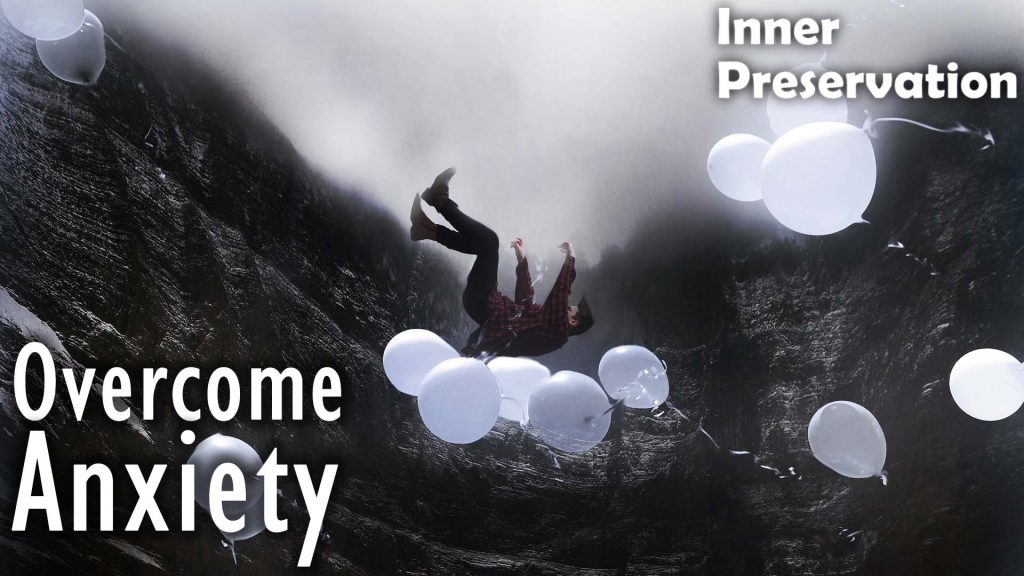
Understanding Anxiety
Anxiety is one of the most common mental health disorders in todays world, with one in six adults experiencing it in their lifetime. Some people may feel too ashamed to admit that they have an anxiety problem, whilst others aren’t even able to recognise theirs.
The severity of its symptoms vary dramatically. But what most might not realise, is that we can all experience anxiety every day, because we need it to some degree to survive. Anxious feelings are good for us and are there to protect us from threats.
Anxiety will help us meet our deadlines at work and deal with life’s emergencies. However, someone maybe experiencing it as a disorder when they begin to notice that this emotion is being taken to the extreme, in situations that don’t pose them any threat. It is merely a false alarm, a chemical change in the body, that is preparing them physically and emotionally for danger. Anxiety is well intentioned, but often misinformed.
It is important that we understand that we are able to reduce anxious feelings and overcome them through balancing our reactions with rational thought and understanding. No matter what situation we find ourselves in, no matter how terrifying, transforming it into something manageable is well within reach.
Cope with Anxiety by Removing the Pressure
It is important to understand that how you process and handle situations directly impacts how much anxiety you experience. People who feel like they have more control over their lives, tend to have better mental health.
It is common in people that suffer from anxiety to put off starting tasks and daily activities because they are afraid or just don’t feel ready enough. Indecisiveness seems to be another facet attributed to anxious people, which together, can lead to significant amounts of time being wasted time where things don’t get done.
An effective way to overcome indecision and lack of control is to just do whatever you need to do, even if it doesn’t go to plan. Anything worth doing is worth doing badly the first time. It will speed up your decision-making and catapult you straight into action. Anxiety can leave you feeling paralysed with indecision, and frightened to start something.
It is important to lower the standards that you set yourself because if they are too high, you will stress yourself out and put off doing something altogether. Doing it badly will free you up to get started. You might find that you only want to get things done perfectly, waiting for the right time to start. This can be daunting and stressful, so removing that pressure will make it that much easier to get it finished.
Whether it turns good or bad, you can always improve on the situation later on. When you look back at it, you will realise that actually getting started and doing what you needed to do, was not as painful as putting it off.

Beat negative self-talk and Forgive Yourself
If you had a friend that always put you down, made fun of you, and pointed out everything that you did wrong, you would want to get this person out of your life. People who suffer from anxiety will spend much of their day thinking about what they have done wrong, their worries, and how bad they are feeling.
You might have noticed that this is something you do. Recognising it is the first step towards changing how you think about yourself and eventually becoming confident enough to beat anxiety. It is important that you start being kinder towards yourself. Try to develop a conscious awareness about what you are doing when you negative self talk. The more supportive you are, the better chance you will have of healing your discomfort inside.
A perfect way to do this is to forgive yourself. Forgive yourself for any mistakes that you have made in the past. Forgive yourself if you weren’t able to muster up the courage to speak to someone about something important or to make that speech.
Forget about all the embarrassment that anxiety has caused you, because your true self has so much more to experience than just hardship. When you forgive yourself for all of your mistakes, you will start receiving the compassion and empathy that you need.
It will be difficult to heal until you start doing this, so next time you put yourself down, remember to be mindful about what you are doing and forgive yourself.
Panic Attacks
There are so many different levels to anxiety, ranging from mild to extreme symptoms. Some people won’t even recognise that they are suffering from it, whilst others can become completely consumed by it. Anxiety can manifest itself in a numbers of different ways, with panic attacks being one of its most extreme forms. If you are someone that frequently gets panicked and consequently feel that you are losing control in what you do in your life, rest assured that you are not alone.
It is estimated that almost 15% of people have experienced a panic attack at some point in their life. So it is important to know what you can do to minimise them without necessarily relying on medication. Antidepressant medications not only carry side effects but have a small success rate compared with cognitive approaches. In the long term, you are more likely to overcome panic disorder if you adopt a new way of thinking about it.
Recognising and accepting the fear will force you to come face to face with it. Avoiding places and situations that provoke your anxiety will only delay your recovery. If you are prone to attacks, do not feel ashamed to speak about them with people that you trust. Next time you feel an attack coming on, don’t fight it.
Look at it like as if you were at sea, don’t try struggle against the waves, because you will only exhaust yourself. Instead, just allow the tide to gently carry you back to shore. It may feel unnatural at first, but remember that fear can’t hurt you, it can only make you stronger.
Affirmation Exercise for Anxiety
If you find that you are having negative thoughts more often than not, this in turn, will be impacting on your confidence, mood, and outlook. If you suffer from negative self thought, you may discover that you are living out these self-fulfilling prophecies. It is important from now on, that you do the opposite and start to create a positive narrative to your life.
Affirmations are a fantastic tool that you can use to increase the likelihood of overcoming anxiety. Deep down every one of us has the potential to achieve all possibility and to conquer the challenges that stand in our way. Over time, affirmations will help guide you to realise, that you are capable of so much more than you think. Positive statements are used to reprogramme the subconscious mind.
They will enable you to overcome self-sabotaging, anxious thoughts, and help you to make positive changes when repeated often enough. When you affirm these statements, you must believe that they already apply to you and that you are experiencing them in the present moment. Really try to feel the feeling and emotion of the statement.
The more specific you are with what you want, the better. Practice them every day, morning and night, perhaps in front of a mirror. Have your affirmations written down and stick to them. Try these statements or you personalise them to suit you better:
- I’m safe and under no threat from the world.
- I am calm, happy, and content.
- I am in charge of how I feel today, and I choose happiness.
- There’s no obstacle that I can’t overcome.
- I inhale confidence and exhale fear.
Over time you will start to notice small positive changes in your thought patterns as you begin to build your confidence and calm your anxiety.